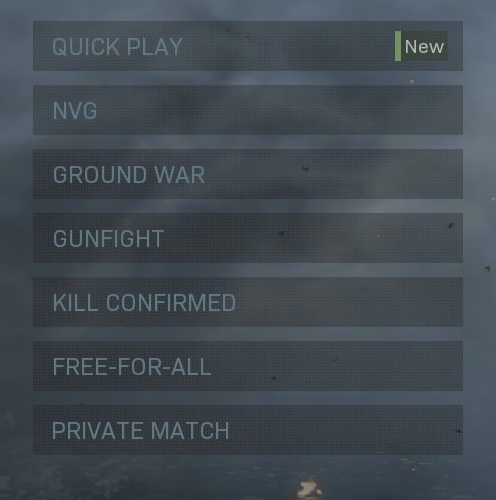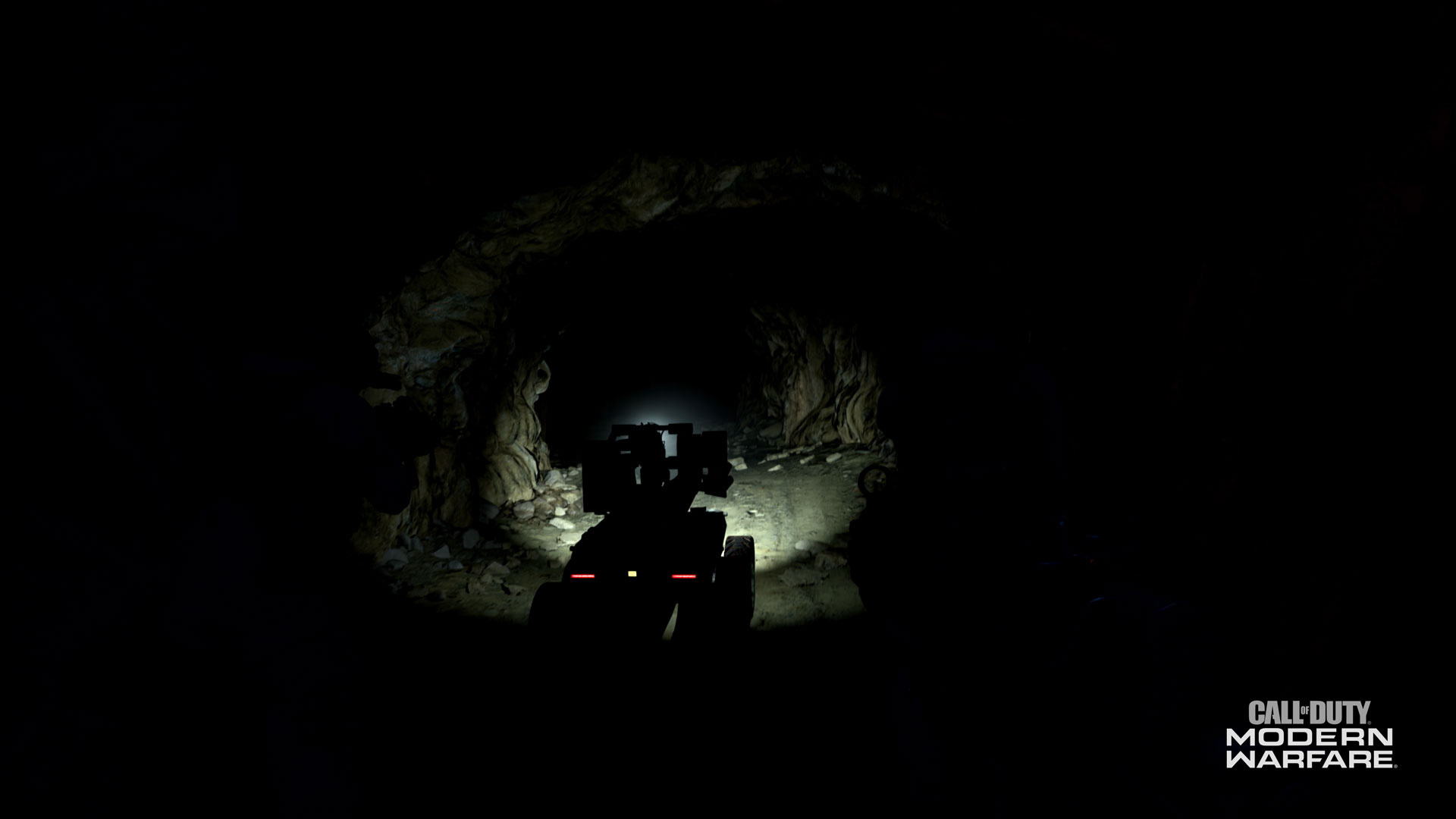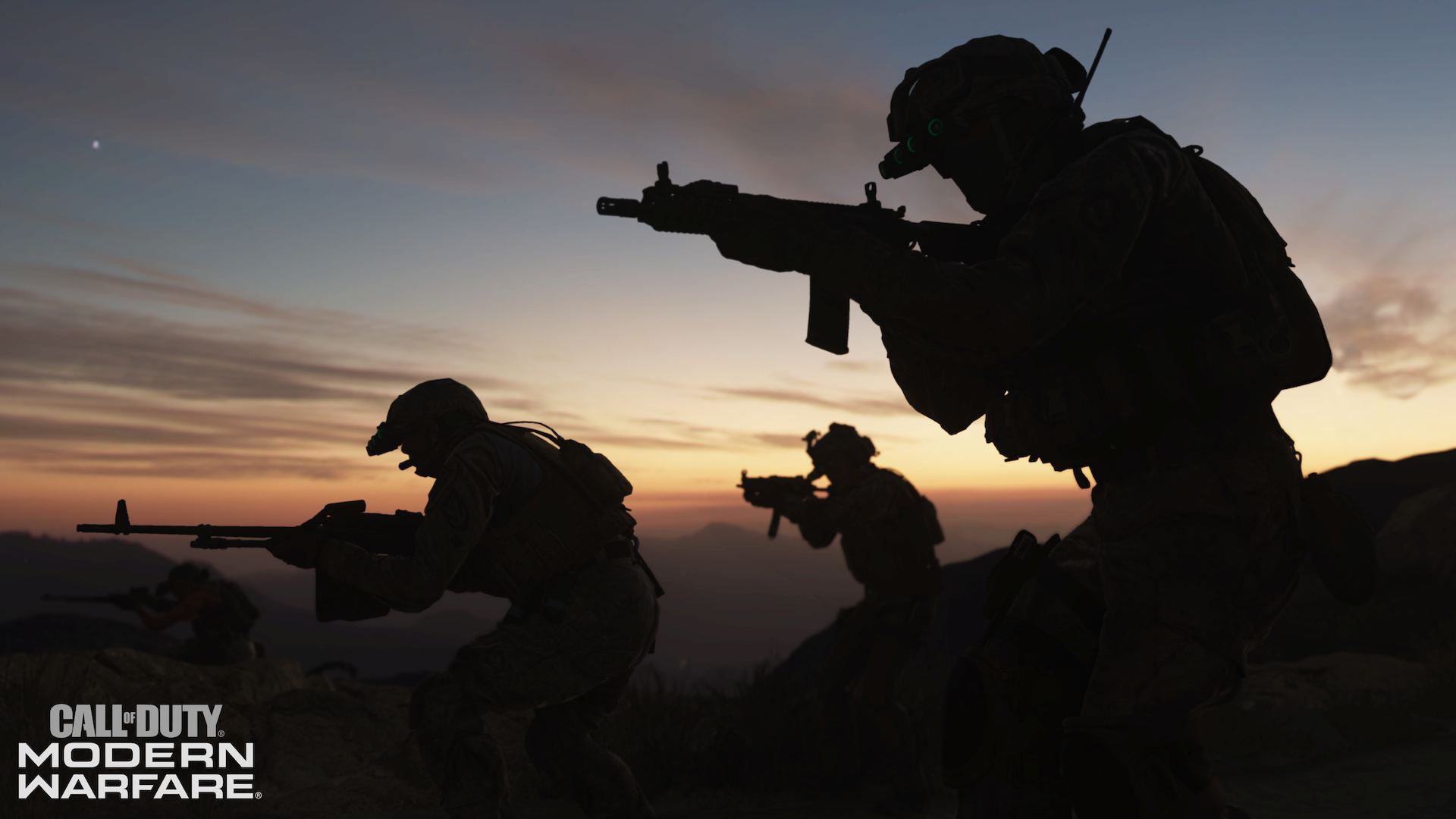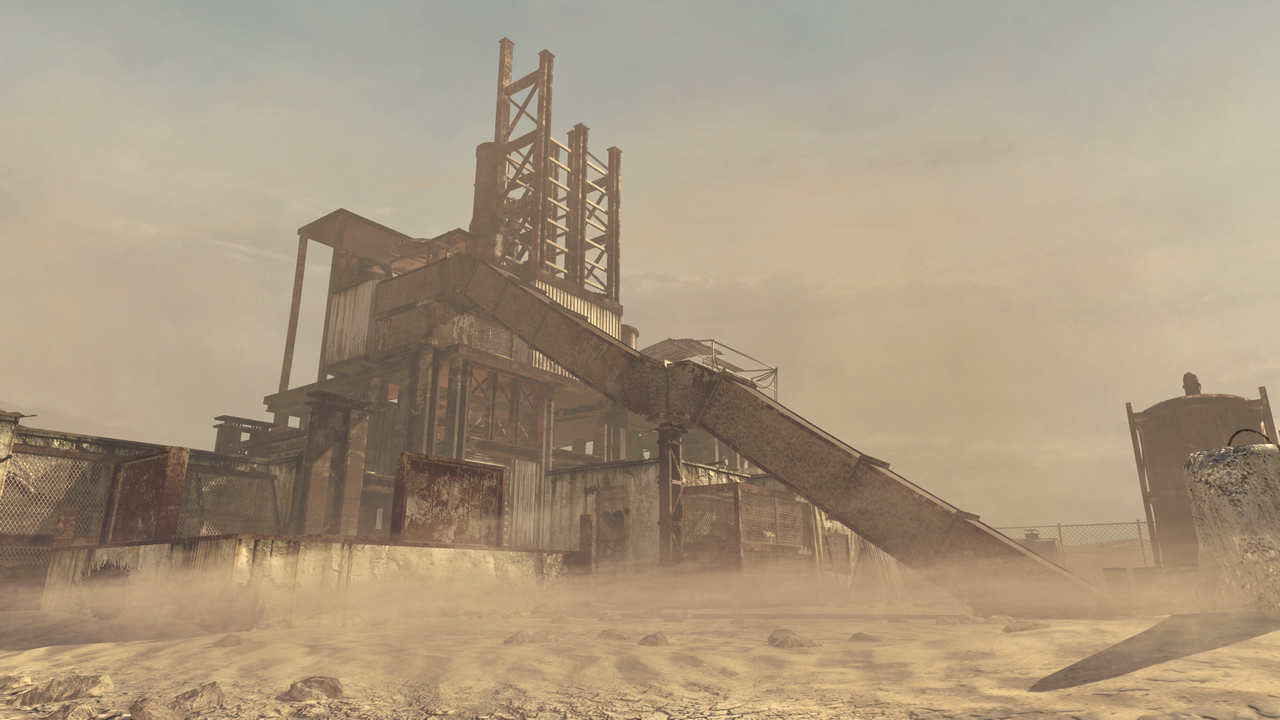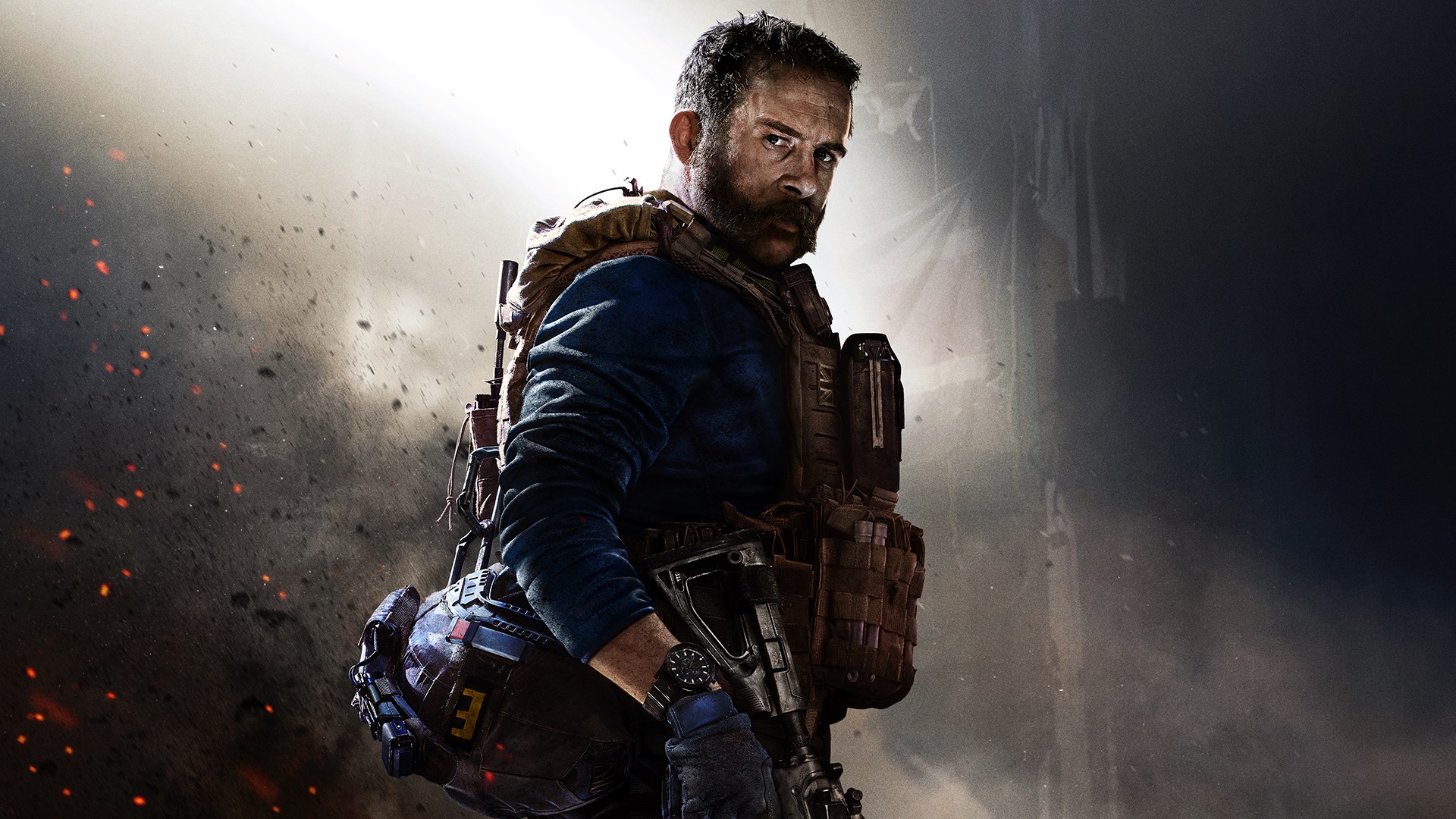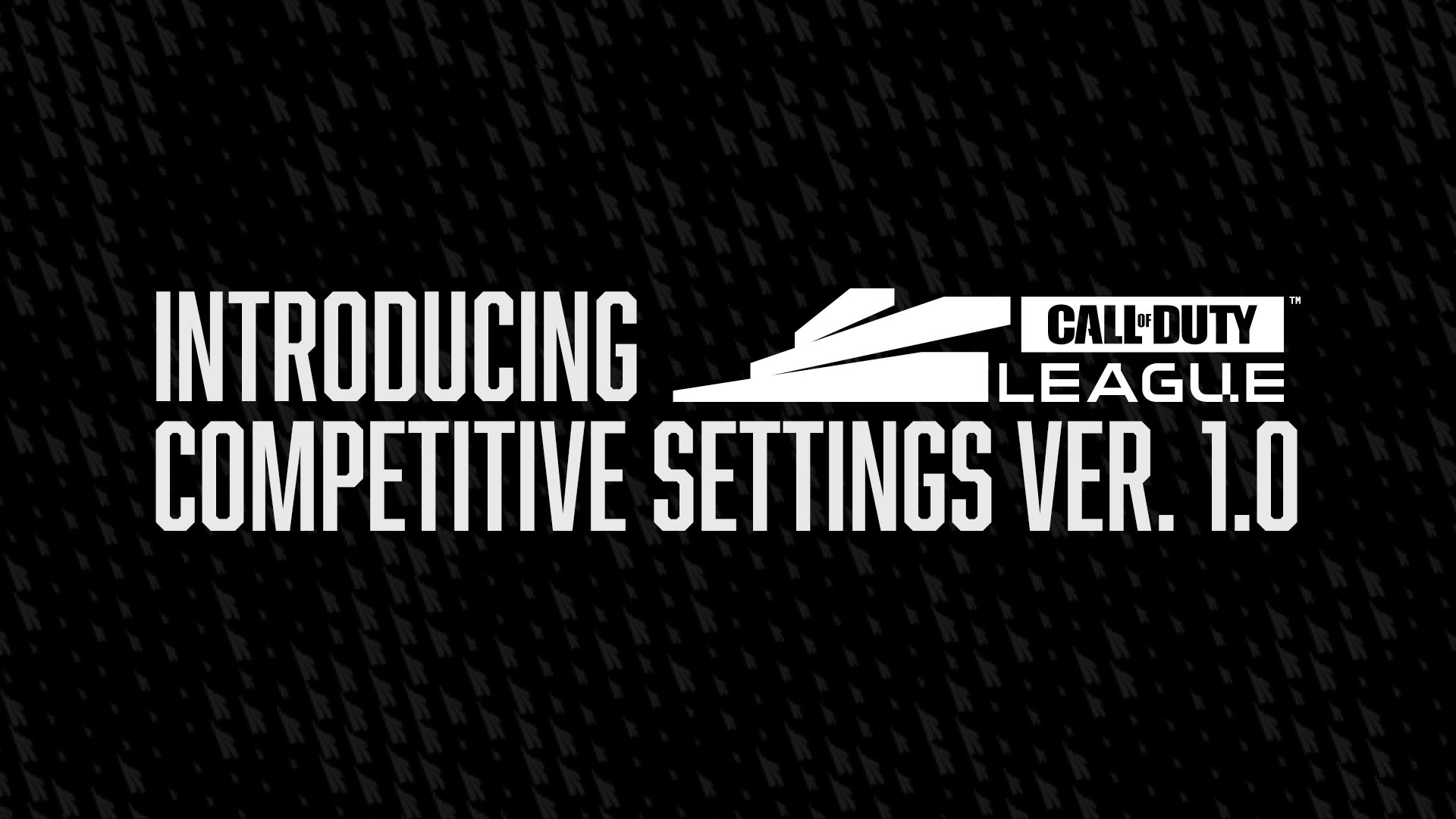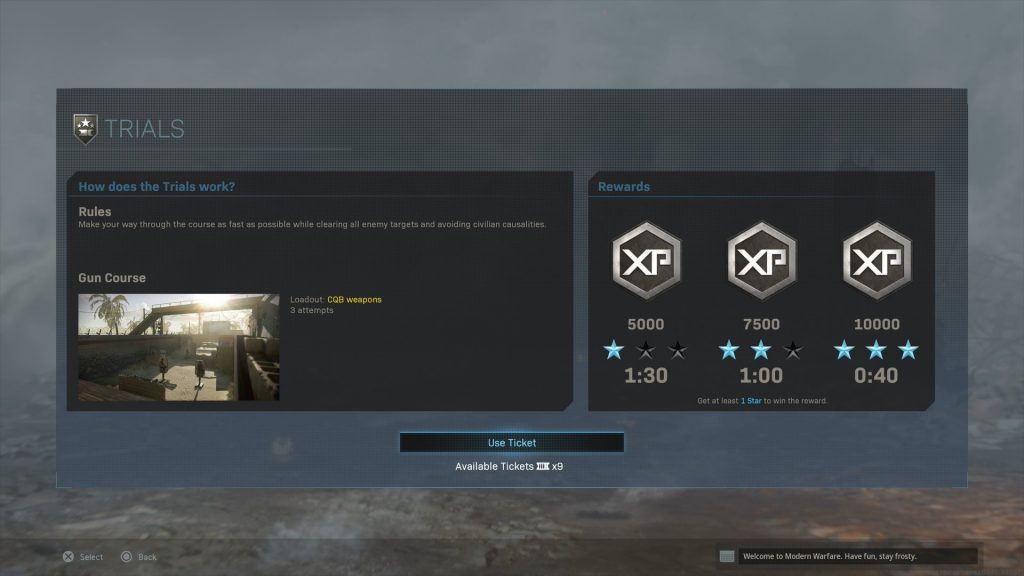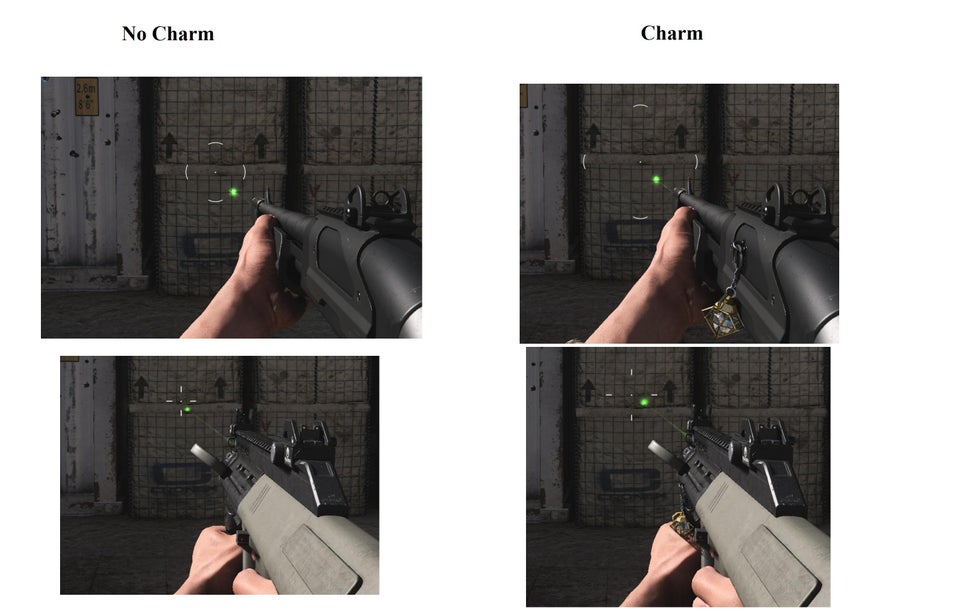The reboot of the Modern Warfare subseries in the Call of Duty franchise reworks much of the formula at a mechanical level; the result is something that plays genuinely different from most entries. And as narrative director Taylor Kurosaki puts it, gameplay and story go hand-in-hand. Modern Warfare’s single-player campaign, meanwhile, opts for a noticeably less bombastic tone, using parallels to real-world conflict and tragedy.
However, questions of whether or not these things were handled properly in-game comes with the territory–GameSpot editors Michael Higham and Tamoor Hussain sat down with Kurosaki for a long conversation about the controversial direction Modern Warfare’s campaign goes.
We talk about Farah’s waterboarding scene, the game’s use of the Highway of Death, the killing of those who walk the line between threat and non-combatant, and how Modern Warfare attempts to build empathy with those involved in these very real conflicts.
The following interview was edited for clarity and readability–you can also watch the video version above. Be warned, spoilers are ahead from this point on.
Michael Higham: Modern Warfare is very story-heavy, which is a bit different from a previous Call of Duty games, at least recently, but it seems that Infinity Ward went all-in on crafting a full story for this game. Why is that?
Taylor Kurosaki: Well, when we set out to sort of re-imagine this kind of branch of the Call of Duty tree, we not only used consultants, military consultants, cultural consultants, regional consultants, sort of for gameplay and mechanics, but we also used them as inspiration for the story. And as we like to say at Infinity Ward, you can’t really separate gameplay from narrative. They kind of go hand-in-hand and narrative enhances gameplay. It enhances the way that the player feels on the stick and good mechanics also enhance the narrative. So going all in was to go in on both, really.
Tamoor Hussain: I’m interested in Call of Duty as a franchise and the purpose of a narrative, even to you. It’s so many different things right now with so many developers working on it. It’s hard to get a good grasp on what the identity of the franchise is when it comes to storytelling. One Call of Duty is almost like a Michael Bay-style Hollywood blockbuster, and another one is trying to pull from real life events. When you come into writing a story, what was the purpose and what was the intent behind the narrative in Modern Warfare?
TK: I would step back and say, that Call of Duty is almost a genre now. It’s not just a franchise, right? We have so many different branches of the tree. And what Call of Duty means to me is, it’s interactive entertainment in the military genre. So for us, our inspiration was from real-world events, and the purpose of the narrative is, frankly, to build empathy. That’s what we’re trying to do. We want our players to have empathy for the characters they play alongside and play as.
When you’re looking at motion pictures or TV, you’re building empathy with a character that is on a screen, a character that is external to you. And we believe that one of the powers of interactive entertainment is that you can build empathy for a character, that you are literally walking, in this case, in the boots of. That is really the purpose of the narrative in these games.
Farah Karim plays a major role in the story, giving a perspective of someone who grew up around tragedy and conflict.
TH: How do you build empathy in these characters and with players when the game is so focused on the disposability of life and your input in that? You’re dispatching them at an incredibly quick pace and the identity, as you said, has changed so many different times. It’s not exactly known for being a franchise where you go to try and build empathy with characters? Those who come back year to year and treat this as a kind of like a yearly blockbuster franchise, how do you reach them? How do you think about those people when it comes to your narrative and it’s, especially when it’s a narrative where you’re discussing events and inspiration is pulled from the headlines?
TK: Again, I would look at Call of Duty more broadly than as a franchise. It now encompasses a lot of different takes on this sort of war genre in games. Now, for me and the team at Infinity Ward, the way we build empathy is, frankly, by putting characters under pressure. There’s no greater source of pressure than being in conflict zones, than being in war. And so, seeing characters overcome pressure and overcome obstacles in their life is the stuff that we all look for in storytelling, in general. There is no story without conflict.
If I have pressure in my life or I have an obstacle in my life, how am I going to overcome that? I can’t just do the same thing over and over and expect a different result. These characters are under this pressure. They have to kind of figure out a way to solve it and that’s sort of the point of kind of playing these games, kind of getting into the boots of these characters playing alongside heroes like Captain Price or new characters like Farah Karim and overcoming the obstacles that they face.
MH: Part of this reboot of Modern Warfare is touching on very sensitive subjects. There are controversial things built into Modern Warfare and I imagine y’all did that for a purpose. But there are going to be a lot of conversations about whether or not it was handled correctly. Do you feel like you and your team handled all those things correctly–all the things that you put into Modern Warfare narratively?
TK: I think that having a discussion about this stuff is very useful. We didn’t invent the subjects that you’re seeing in our game. We did painstaking research over years and years and these are the real-world scenarios that combat operators find themselves in, that local civilians on the ground find themselves in. So, our goals were twofold. One, [to portray] a Tier 1 operator who’s going into a combat zone, where the delineation of where it’s safe or where there’s conflict is blurred, where enemies don’t wear uniforms and don’t identify themselves as such. So you have imperfect intel, how are you expected to go into those areas and conduct yourself perfectly? That’s the burden that these combat operators face. And this was a theme that they thought we could convey and that was a goal for us. And again, to put the player in their shoes and figure out how they, with this imperfect intel, operate perfectly; it’s the quandaries, the burden of those operators.
But that’s not where we wanted to stop. There are people in the world who are living in conflict zones today who didn’t ask or choose to sign up, they didn’t choose to deploy somewhere over there, the conflict comes to their local town, their families, their communities. And we also wanted to build empathy with those characters that don’t have a choice and have to figure things out on the fly.
TH: With that in mind, do you feel a responsibility to actually say something about that? Having played a majority of the campaign, and as someone who grew up with those conflicts in mind, I don’t need to be told about them. They’ve touched my life in various ways. I’ve thought about these things since I was young. Perhaps it works for a few people, but in 2019 it’s not a “light bulb” moment for a lot of people. They understand that stuff wherever they are in the world, those conflicts are readily apparent. So, is there then a responsibility for Infinity Ward to, instead of just saying this exists, which is unnecessary because everyone knows it exists, to make a statement about it? The majority of the campaign I played didn’t seem to make a statement. What’s your stance on whether you should have made that statement or wherever you feel the need to make that statement?
TK: I think we’re making a tremendous statement about this. You talk about you knowing these conflicts exists and knowing these situations exist. I would argue that the majority of our player base does not have a background anywhere similar to a character like Farah.
And so for us to educate, to enlighten this player base about people like her, and again there are millions of people put in her position, I think is bringing awareness to something that’s sort of outside of the understanding of a lot of people. If it encourages them to look more things up or do more research, or again, build empathy with people whose backgrounds, cultures, and ways of life are dissimilar to their own, I think that’s a good thing.
TH: I suppose the follow-up to that is, you’re placing a lot of faith on people reading into that as something that has real-world implications. I don’t want to minimize the Call of Duty audience or paint them all with the same brush, but for the past few years they’ve at least been trained to treat all these things as fictional, kind of like constructs. Whereas, these are very real-world events. There are echoes of the Haditha massacre, and the Highway of Death; these were American atrocities that have been turned into Russian atrocities. For the average Call of Duty audience, are they going to be able to distinguish between the fact that this is something that really happened, that these are people that really exist and this is just a construct that a few game developers have created to be this blockbuster set-piece?
My argument would be, for people to make that connection, you would need to say ‘this is based on real-world events,’ or that these things are inspired by events to commemorate them in some way, as a way to create that line of what’s real.
TK: So, you know that they’re based on real-world events and yet you don’t give the player-base the credit. You’re sort of saying that the Call of Duty audience should be talked down to or things should be simplified or dumbed down. In fact, we have tons of research that the Call of Duty audience wants more accurate portrayals of conflict areas. They don’t want a dumbed-down experience. They want an experience where characters aren’t purely good or purely evil, where there is moral complexity involved. We’ve done a lot of research into this. So, for me, I like to speak up to my audience and I do believe that they are sophisticated enough to make the parallels.
When you mentioned the Highway of Death, if you, if you go back, I encourage you to go back and play start from the beginning of that mission, where you get the mission briefing. Farah talks about this location as the Highway of Death before the mission takes place. So the Highway of Death is not what came out of that mission. It was already that. And then if you look at the environmental storytelling, there’s already bombed out vehicles and all kinds of, you know, things that are relating to previous episodes and it’s even mentioned in there.
MH: You mention pulling from real-world events, but then having it make sense in the context of what you’re trying to do with Modern Warfare. Urzikstan is a fictional country, but you’re bringing in a real-world event into a fictional country. Do you feel okay with the fact that the Highway of Death, literally name-for-name of an American atrocity during the first Gulf War that was committed by Americans, has a mission briefing with Farah saying that what happened there was a Russian military terrorist attack? Do you feel like that was necessary? Are you okay with taking a real-world event but flipping the script in the same breath?
TK: I think you could probably find many instances of the words ‘highway of death’ being used in a lot of cases.
The reason why Urzikstan is a fictional country is because we are taking themes that we see played over and over again in the last 50 years in countries and locations all around the world. We’re not making assimilation of one particular country or one in particular conflict. These are themes that play out over and over again with a lot of the same players involved. We don’t portray any one side as good or bad in our game. There are American characters who sort of betray the trust of other characters in the story. There are Middle Easterners who kind of resort to extreme tactics that you wouldn’t think are sort of above board and, and there’s also characters that are from the same sort of region that, that you think are, are more morally just, same thing for Russian characters.
We have Russian antagonists and Russian heroes in this game. And again that was our goal. This is not some kind of propaganda or anything like that. This is reporting on what is happening in these conflict zones. To really break it down, these conflicts in the world today, these are proxy wars, super powers trying to gain influence in specific places. And the biggest victims of these proxy wars are the local people on the ground. I think that when you finish the campaign and look at it in its totality, that’s really what we’re trying to say here. I think that for people who are from a more privileged background or don’t live in close proximity to these conflict zones, they don’t think about the cost or the locals in these areas.
I think that this is a thing that we’re really building awareness for. When I was a kid, I learned a lot about stuff through things like Schoolhouse Rock, you know what I mean? I was singing songs and I was learning about real-world things, but in an entertaining fashion. And so I think that for people today, if we learn about some of these things, even while we’re engaged in an interactive experience, I think that it’s still valuable.
TH: How do you select the moments of gameplay that you use to tell a story? Because at a very fundamental level, you’re doing things like walking into a room, clearing it and almost taking out families just because they perceive you as a threat. There are gray areas where you’re trying to find The Wolf and there are men with guns, but there are also women who react, and kids who react to you bursting into a room. You instantly shoot who’s a threat and move on. And there are characters who mention that as a thing that’s kind of unfortunately but you have to do.
Then you have things like the gamification of waterboarding, a moment which a character is waterboarded and you’re looking left and right and pressing a button to breathe. And the Russian leader is on top of you saying, ‘Oh, you’re really good at this.’ There are these moments of dissonance where I’m like, this is one of the most horrific things, it’s basically a war crime and I’m partaking in it in this very gamey way. How do you kind of factor that in? How do you justify that?
Also, how’s that relationship with the gameplay team where you need to dictate, ‘we need a waterboarding scene’ and how do you set the tone for that? Because for me, that missed the mark. Obviously, waterboarding is an incredibly awful thing, but then it was just a confluence of moving left and right and turning your head for these safe zones to breath while having this character almost goading me. How do you strike that balance?
TK: You mentioned two things. You mentioned the clearing techniques in our new CQB [close quarters battle]. Again, this is the burden that these combat operators face. That people are not identifying themselves clearly, they don’t talk about good guys or bad guys. They talk about threats, unknowns. These are the concepts that are actually being used in these operations. And the game does tons of heuristics, constantly, when you’re playing in these areas. And if you take action against someone who has proven themselves to not be a threat to you or your team, you will fail. And it’s the game’s way of basically saying: that’s not becoming of a combat operator. But if someone demonstrates themselves as a threat to you, then you need to protect yourself. You need to protect your squad mates and complete this mission. That’s the metric there. And again, we spent a lot of time putting those heuristics into the game to try to read player intent.
In the same way that if you’re a combat operator and you acted in an unbecoming way, you might be court-martialed, you might be put in prison. The game has its own way of, kind of keeping you on the straight-and-narrow and we have tons of user test data that shows that our players care about the character they’re playing as and with, and they are trying their absolute best to do the right thing in these difficult circumstances.
And then your second question was about the waterboarding sequence and the gamification of it, as you put it. By that point in the campaign, you have played alongside Commander Farah Karim as a fully-fledged commander. You’ve also seen some of the more formative moments in her early life. So, for a player base that doesn’t have the same background as she does, they now know enough about her and have seen enough of it to have a better understanding of who she is and what she stands for.
There’s nothing in the game that compels you to play along and there’s nothing in the game that makes you gamify that moment as you say. The game doesn’t fail you, the game progress is regardless. We are giving our players a choice and we believe that most players know who she is and know that she would fight in that circumstance, and we know that she would resist and use whatever means necessary to gain an advantage over her captor. If your instinct in that moment is to sort of retreat within yourself, the game allows you to do that and progress regardless.
MH: There are a lot of traumatic moments in the campaign. One that sticks out to me is at the embassy in Urzikstan and The Butcher is behind glass. He kills someone’s father, the child runs away into smoke, he then shoots into the smoke, implying that The Butcher killed a child. And there are many moments that do touch on those sorts of things. Do you feel like you were able to draw the line properly? Do you feel like you went too far? Do you see all of that as necessary to hone in on the point that you’re trying to make with Modern Warfare?
TK: When we first started talking, we talked about the philosophy of making games; design, mechanics, and narrative being inextricably linked. You can’t make a story about something or say it’s about something and not have the player experience be about that thing. So, if we’re saying that the burden of a modern combat operator is that there are not always good choices, or there isn’t always a clear cut way forward, that they’re put in these no-win situations and they do their best, you can’t just have a veneer of a narrative wrapper on top of the game and not have the player experience that. Otherwise, those [design, mechanics, narrative] are sort of disconnected, and then you might as well just be making a movie and a little minigame. If the game is going to be about that thing, we walk the walk and we talk the talk.
Characters are what they do. They aren’t what they say they do. That is the reason for these moments in the game. If we’re making a game about the burden of these soldiers and the burden of these local fighters, then to not have those gameplay moments in the game decouples the narrative from the gameplay. Then you really got nothing.
MH: You mention that Modern Warfare is very character focused story and by the end of it, Captain Price forms his special task force. Having played through it to the end, I noticed how it’s weaving in things that we’ve seen in the original Modern Warfare and Modern Warfare 2, and it implies that there is more to be told.
You’re told to play Spec Ops to continue part of the story, but I know the team isn’t leaving it at that in terms of the story. So, is this really a reboot for the series and will we see the story of Captain Price and Task Force 141 again?
TK: We have big plans to continue this story and like we’ve said since we revealed the game, we’re calling it a reimagining, you could call it a reboot. The point is that, like Christopher Nolan’s Batman or Joker, or like Daniel Craig’s James Bond, the reimagining of those series were not beholden to the specific plot points of the originals. What they’re beholden to is the spirit of the originals. And so, us having Price in there and us referring to Task Force 141, we get to play with those ingredients.
But we want to make it clear to our fans to not try to connect the dots too much. This is not a prequel. Again, when you watch Quantum of Solace, Daniel Craig’s Bond doesn’t have to [abide by] Moonraker right? But Daniel Craig is quintessentially Bond. And I’d say that Barry Sloane is quintessentially Captain Price. And so yes, many more stories to tell in this universe.
Source: GameSpot.com
————-
Order Call of Duty: Modern Warfare
Amazon – PS4 – Xbox One
Gamestop
Bestbuy – PS4 – Xbox One
Ebay
Sony
Microsoft
Battle.net
More Purchase Options at CallofDuty.com
